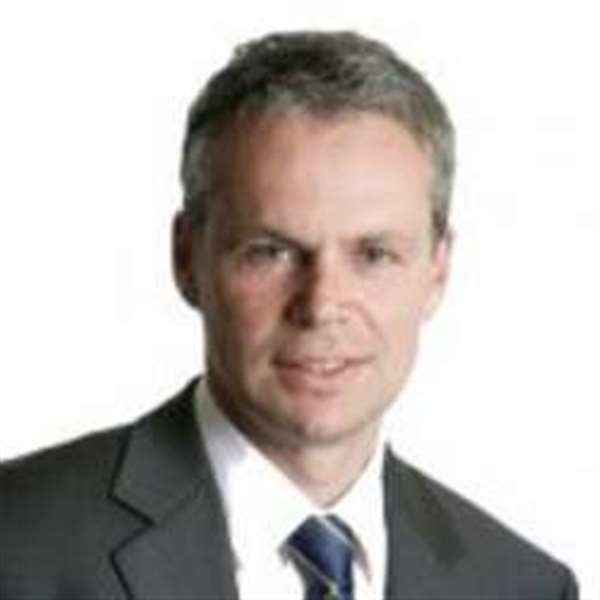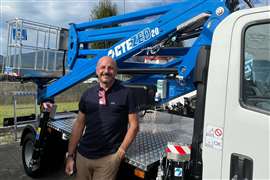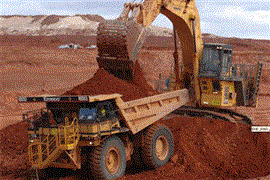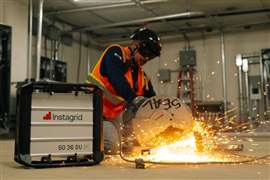Feature - Sustainability high on agenda
19 June 2015

ERA president Vesa Koivula used his speech to the ERA convention to emphasise the importance of sustainability to Europe’s rental sector. Sustainability was the theme for the convention.
“Rental has a role to play towards a more sustainable future”, he said. “Rental is inherently a sustainable form of sourcing. Sharing resources - when practically possible - is economically wise, but also wise from an environmental perspective.
“Our industry can also, in many cases, help to optimise transportation and modernise the fleet, and ensure professional service and maintenance [of equipment] and in other ways add to a more sustainable business operation. That’s why we have organised several sessions around this theme.”
The convention, held in Rome on 3-4 June, had the theme ‘Sustainability as an Opportunity.”
“Sustainability often appears as a burden from a short-term perspective, but in fact it can bring many immediate advantages and savings to different kind of businesses and generally to daily life,” said Mr Koivula.
The ERA’s sustainability committee issued two reports during the convention, one outlining the measures that rental companies can take to become sustainable suppliers, and the other for government authorities and other bodies explaining the part that rental can play in the transition to the so-called ‘circular economy’.
Hope in Eternal City
Italy’s construction market is today the same size that it was in 1966 and 32% smaller than the peak in 2008.
With that brutal fact, Gian Luca Benci, manager of external affairs for Italian rental and distributors association Assodimi, opened his presentation on the roundtable session on the Italian rental market. That 32% decrease is accounted for by a 23% fall in residential spending and a whopping 41% shrinkage in non-residential construction.
However, Mr Benci said that “while there are still many shadows, it is possible to see some light.” The countries GDP was flat in the first quarter of 20155 – an improvement on the previous year – and he said there was more positive feeling on the market, despite the difficulties.
“Sentiment is beginning to be positive. The crisis has ‘cleansed’ the market – with more focus on professional and quality companies – and Assodimi has created ‘quality rent’ to increase the professionalism of the industry.”
Enrico de Rosa, CFO of Rome-based rental company Officine Giuliano, which rents generators, compressors and aerial platforms, said the company had adjusted its strategy to survive the recession, extending the life of its fleet, with average ages higher by around one year for all its equipment categories.
To do this, he said, the company had implemented an intensive fleet maintenance programme, using in-house resources and mechanics focused on specific products.
Rounding up the session was Tarcisio Sciocco, country manager in Italy for Boels Rental, who highlighted some of the peculiarities of the Italian market, including the continued use of cheques for payments and deposits, extremely long payment terms, low rental rates, and Italian bureaucracy.
“It is very difficult to understand and accept the peculiarities of the Italian market”, he told delegates, “My job has been to explain them…payment terms are absolutely unacceptable, and we at Boels are very strict about it. If it is OK to pay in advance for car rental, why not for equipment rental?”
“But despite all the problems, Italy is a country with high potential…Boels is very pleased to have invested in Italy and we are here to stay.”
‘Sustainability is a buzzword’
Jup van‘t Veld of research company Schutelaar & Partners described sustainability as a “buzzword”.
He said: “I read about it everywhere and now I get to Rome and the ERA chips in. There is even a Sustainable Product award at this event.”
The company started out 20 years ago and Mr van’t Veld recalled: “We were mainly telling people what they need to do to understand what was going to happen in terms of government and NGO activity. Now we are in the implementation phase. Customers know what they want to do and they need our help to do it.”
Mr van’t Veld said that 30 years from now the earth will have a population of at least nine billion people.
“A lot of this population are people who are escaping or who have escaped from poverty. They have purchasing power and are starting to use more resources.
“This will bring a change from a linear to a circular economy. Resources will be kept in the economic cycle for as long as possible. But we also need to make a profit, or the industry is not sustainable at all.
He added that sustainable businesses are more stable and more attractive to investors. “There are no quick wins, but sustainability is the way forward.”
Beyond outsourcing
Christoph Afheld, director of Zeppelin Streif Baulogistik – the new Zeppelin division created by the acquisition last year of Streif from Hochtief – explained to delegates how Zeppelin believes that the equipment rental market needs to go beyond the provision of products and services.
Mr Afheld said offering solutions such as fleet outsourcing and, ultimately, integrated site and project management, provided the opportunity for rental companies to differentiate themselves from their competitors, even if such services tend to be complicated, requiring in-house expertise and an understanding of project logistics.
He gave as an example Zeppelin’s work on the Frankfurt Airport Terminal A-Plus project (extending the terminal to accept the new Airbus A380 aircraft), where the company managed the logistics of 100,000 material deliveries, ran the site access system for a total of 15,000 staff, and provided 15 km of cable and pipelines, 450 accommodation containers and 5 km of safety barriers.
“These services give you the opportunity to differentiate and early access to major projects.”
Trends in European rental
ERA secretary general Michel Petitjean said the average sales of a basket of rental equipment between 2005 and 2014 was around 140,000 units a year. In 2013 this dropped by 12.5% and despite an 11% increase in 2014 the figure is still below average at around 124,000 units.
The European rental market in 2013 was valued at €22.6 billion, a rise of 0.1% on 2012 at constant exchange rates. In 2014 it rose 2.7% and the forecast for this year and 2016 are for increases of 2.6% and 3.2% respectively.
The best markets for penetration in 2013 were the Nordic countries and the UK. The worst were Spain and Italy. The UK, France and Germany between them represent about two-thirds of the total European market.
In terms of capital expenditure, this peaked in 2007 with a total of €6 billion, dropped between 70% and 90% in 2009 to €2.1 billion, and has made some recovery in 2014 at €4.4 billion.
The business case
Kevin Haycock presented a case study on A-Plant’s programme to influence driver behaviour. He said the company had fitted 200 vehicles with trackers that generate driver-specific reports to improve safety and reduce fuel usage.
The result was a 7% reduction in fuel usage - which equates to around €70000 a year - as well as a fall in engine idling time of 8% and a massive drop in speeding infringements of 77%.
Mr Haycock also said that when accidents do occur, the cost of repairs had fallen by half.
Telematics update
German fleet managers association VDBUM has been leading efforts in Europe to standardise on telematics data from construction machines, with the organisation’s ‘BauFloot’ project drawing on work being done in the US by AEMP (Association of Equipment Management Professionals).
Ramirent’s executive vice president of sourcing and fleet management, Dino Leisenschneider, reporting on behalf of VDBUM, said that fleet managers in Germany had provided feedback to VDBUM on the proposed system, with the most important areas for use of telematics led by machine location and followed by cumulative operating hours, fault codes, cumulative idle hours, and engine running or not.
The same survey found that fleet managers were interested in further applications for telematics, including maintenance, theft protection and operation outside of working hours.
The AEMP and VDBUM project is partly about allowing equipment owners to have access consistent data even if they are running mixed fleets.
Claudio Fiorentini, JCB’s managing director of global major accounts, gave the view of an OEM, and argued that OEM telematics systems – like JCB’s own Live-Link - offered very rich operating data, allowing rental companies to provide customers with detailed information on how machines are being used.
“The opportunity is to sell added value services – offer machine performance reports to your customers, how it has been used on site”, he said, “You can add value to your rental proposal, giving you the opportunity to diversify your offer.”
Stéphane Hénon, managing director of Loxam, speaking from the audience, pointed out the implications of providing customers with detailed operating data; “They will see that they use the machine for one or two hours, then they will ask for hourly invoices and not daily invoices.”
‘We must get our act together’
Franciska Janzon, chairwoman of the ERA Sustainability Committee, was pleased to report that the committee had been started up again.
Ms Janzon said the idea of sustainability comes from sustainable development and the world’s first Earth Summit back in 1992. In terms of rental this means developing equipment that “meets the needs of the present without compromising the ability of future generations to meet their own needs.”
She added that there were three aspects to sustainability - the environmental, social and financial - and asked: “What’s in it for rental? Can we make a role for ourselves in this area?”
Highlighting the benefits of increased efficiency of equipment through sustainability, Ms Janzon added: “We suggest that rental should push itself even more towards sustainability. It’s easier to do with all rental companies involved, rather than just one.”
The committee has produced two brochures aimed at rental companies and their customers, with a third for regulatory authorities to follow.
“Equipment rental: the sustainable choice” contains examples of rental companies embracing sustainability, including Speedy Hire’s Partner Excellence Programme, Bredenoord’s Clear Concept series of mobile power systems and Loxam’s equipment recycling programme.
Ms Janzon concluded: “The bigger customers see sustainability as an opportunity and they are already doing great things.
“If we don’t get our act together, we will no longer be relevant to them.”
‘Safer, easier, more cost-effective’
Martin Holmgren of Cramo, chairman of the Equipment Technology committee, said it was working together with equipment manufacturers to make things easier, safer and more cost-effective for the rental industry.
This included work on the total cost of ownership and research into the cause of accidents and damage to equipment
A number of workshops took place in this area in 2014. These were confidential, but at its October 2015 meeting the committee is set to discuss how to be transparent with revealing their findings. The committee also organised 10 face to face meetings between OEMs and rental companies at Intermat in Paris this year.
“I see a much better understanding between rental companies and OEMs as a result of those meetings,” said Mr Holmgren.
PHOTOS FOR THIS STORY AND MAGAZINE FEATURE COURTESY ERA/LUCA GAZZOTTI
This is a feature from the June issue of IRN. For the full feature, including coverage of the European Rental Awards, please subscribe to the magazine: http://www.khl.com/subscriptions
STAY CONNECTED



Receive the information you need when you need it through our world-leading magazines, newsletters and daily briefings.
CONNECT WITH THE TEAM











